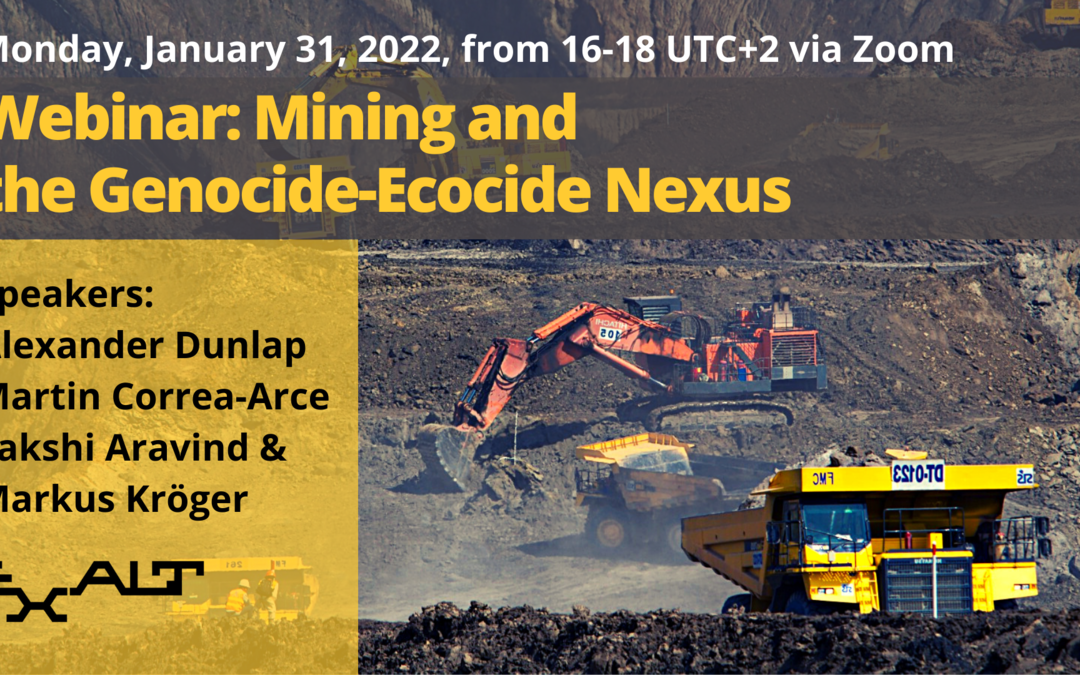Speakers:
- Alexander Dunlap, Centre for Development and the Environment, University of Oslo
- Martin Correa-Arce, Universidad de Comunalidad, Union Hidalgo, Oaxaca
- Sakshi Aravind, Department of Land Economy, University of Cambridge
- Markus Kröger, Global Development Studies, University of Helsinki
Capitalism and Industrialism have been systematically consuming the planet, working to assimilate and homogenize human and nonhumans into their networks of production and consumption. This has had exterminating consequences, taking a serious toll on human and biological diversity, triggering widespread socio-ecological crisis, climate catastrophe, and is making a sixth extinction an imminent possibility. John Clark consequently has argued that the ‘Necrocene’ is far more accurate than the Anthropocene to describe this geological epoch. The harsh realities of technological capitalism raise the conceptual relevance of genocide and ecocide in research. Why are researchers systematically underestimating the progressive and ‘slow’ cumulative impact of capitalism, industrialization, and technological development?
This webinar focuses on bridging this gap by exploring colonial/critical genocide studies in relationship to political ecology, anthropology, and human geography. Discussing critical genocide studies in relationship to fieldwork, this webinar unpacks the particular relevance of the ‘genocide-ecocide nexus’ to political ecology, but also the difficult dilemmas faced when substantiating the claims of research participants on the ground. This webinar begins with the keynote speaker, Dr. Alexander Dunlap, who will give a presentation based around two open access articles (see links below) discussing how they came to critical genocide studies, their experience with applying these terms, their relevance, and the dilemmas.
Laying out a terrain of terms, reasons, and concerns, 3 discussants— Markus Kröger, Sakshi Aravind and Martín Correa Arce—will reflect on these studies, concerns, and dilemmas in relation to their own experiences, work, and ideas. After short presentations from each these scholars and an exchange, the floor will then open for a facilitated Q&A session with the attendants.
Time: On Monday, January 31, 2022, from 16-18 (UTC+2)
Place: Zoom
There is no charge for attending the event, however registration is required. Please register using this link by January 28, 2022.

